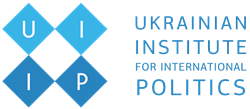Ukraine gets access to the Instrument for Pre-accession Assistance (IPA)
Ukraine gets access to the Instrument for Pre-accession Assistance (IPA). Through this program, the European Commission provides candidate countries with support in the form of grants, investments and technical assistance.
During the existence of this financial instrument, candidate countries have already received significant amounts of funds (some - hundreds of thousands, and some billions of euros) to bring their accession to the European Union closer. For example, Albania with a population of only 2.8 million received 640 million euros during 2014-2020 for the implementation of key reforms. Serbia, whose economy is three times smaller than Ukraine's, received 1.5 billion euros during the same period (this is about 200 million per year).
What this programme is about?
IPA is an EU program for candidate countries and potential candidates.
Previously, when the countries of Central and Eastern Europe were integrated into the EU, funding for the preparation of these countries for membership was provided through a number of programs and instruments: PHARE, PHARE CBC, ISPA, SAPARD, CARDS. They helped in improving the capacity of public administration and creating the appropriate legal framework for EU membership.
After the accession of Croatia, the EU introduced the IPA, which has been used by the Western Balkans and Turkey since 2007.
Although the IPA has a solid list of priorities (strengthening the rule of law and human rights, promoting a low-carbon economy, supporting cross-border cooperation), the main focus of the programme is still investing in the socio-economic sphere of candidate countries.
During the existence of this financial instrument, candidate countries have already received significant sums of money (some - hundreds of thousands, and some billions of euros) to bring their accession to the European Union closer. From 2014 to 2020, the IPA budget was 11.7 billion euros for EU candidate countries. For example, small Albania with a population of 2.8 million received 640 million euros for the implementation of these reforms.
During 2014-2020, Turkey, whose economy is 4 times larger than the economy of Ukraine, received 3.5 billion euros (about 600 million per year). Serbia (an economy three times smaller than Ukraine's) received 1.5 billion euros during the same period (approximately 200 million per year)
Assistance is provided on the basis of multi-annual indicative planning documents, which the country creates in close consultation with national authorities. Civil society and other stakeholders are also involved in this process. The Commission and the beneficiary countries conclude framework agreements on the implementation of aid within the framework of the IPA.
In general, IPA activities are implemented and managed in different ways:
Beneficiary countries usually receive various types of funding.
Each year, a plan is created for each country, which defines the main steps and the corresponding deadlines.
For effective management, special monitoring committees are created, such as:
Read more about this programme: https://ec.europa.eu/.../overview-instrument-pre...


